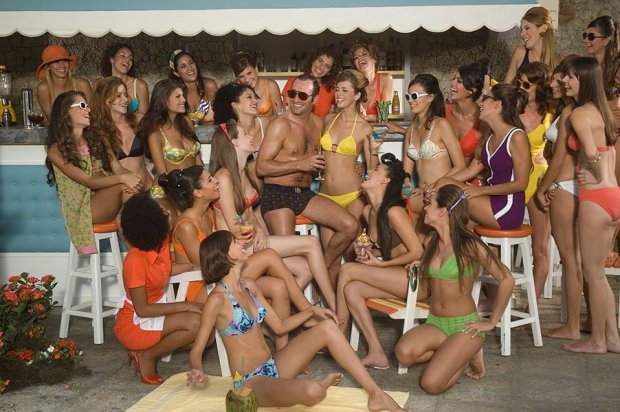Montpellier
I have never voted in an election for president of France, not being French. But as a councillor in my commune, before Brexit brought my promising French political career to a screeching halt, disqualifying me from municipal politics, it was among my duties to count the votes of others.
It’s election day in France, the first round of the 2022 presidential race, and there are 12 candidates in the running. The top two will face off in a second round in two weeks. It’s expected that these will be the incumbent, Emmanuel Macron, and Marine Le Pen, in a rerun of the 2017 election that Macron won 66 to 34 per cent.
Many here are saying, as they have for as long as anyone can remember, that the elections are fixed. ‘They will never let us win,’ is this time a particular refrain of the Eric Zemmour camp, with ‘they’ being big media and its largely Macronist owners. It’s certainly true that big media is partisan here but they’re not stuffing ballots, as far as I can tell.
Stalin supposedly said ‘those who vote decide nothing. Those who count the votes decide everything.’
But yet in five years helping invigilate presidential, regional, departmental, National Assembly and municipal elections in my commune, I never saw anything to suggest that the actual voting and counting is other than scrupulously fair. There’s a fat book of rules and procedures, and sometimes someone shows up from the prefecture to make sure the vote is compliant.
The fix, if there is one, is in how candidates get selected in the first place, and how the voting system has been exploited to give jobs for life to often inadequate, frequently corrupt and very often hated politicians – elections be damned.
In European, municipal, departmental and regional elections, candidates are elected on lists which present voters with a fait accompli. Get to the top of these lists, and here’s where there are jobs for ever. Politicians fail upwards for decades.
Presidential candidates emerge from an often mysterious process and the dozen who offer themselves today to lead France are a motley crew. The real choice on offer is much less attractive than the large field would suggest. You’ll find my ‘cut-out and keep’ guide to the runners and riders here.
We have two voting ‘bureaux’ in our commune so the team from our technical services department divides the Salle du Peuple (hall of the people) in two and sets up long tables for the invigilators and four curtained booths, in which voters briefly disappear to make their choice.
It’s quite unlike how you vote in Britain, more bureaucratic, but with no grey areas. The system is designed to identify each person, confirm their eligibility, and then allow them to cast a single vote. These steps are accompanied by the rigorous checking of identity cards and also voter cards which must be applied for, in advance, at the Mairie (city hall), and which are stamped at every election.
Being British and assumed (correctly) to be only faintly acquainted with this process, which is indeed even more complicated than I summarise, I was employed quite often in the voting station itself, a transparent sealed apparatus. I had the grand appearing (although actually menial) task of announcing ‘voté!’ every time I pulled the handle, so the vote envelope could drop into the container.
Absentee ballots are rare and there is no postal voting. Votes can be cast by ‘procuration’ for those who are unable to vote in person, but the necessary paperwork must be approved by the Gendarmerie.
I should say that in my commune, voting is achieved with good-natured efficiency and in the absence of any partisanship. We have urns of coffee and trays of croissants. It may be different in some places although friends tell me that where they are the atmosphere is often very similar to this.
When the voting stops the count starts as the voting containers are emptied and we empty the envelopes into piles. Some contain blank ballots. Others, various insults directed at politicians. Especially amusing ‘spoiled’ ballots are read out to general amusement, although not counted. The mayor then posts the results and the secretary general of the Marie sends them on to the prefecture.
The voting starts at 8 am here and the polls close in the big cities 12 hours later. So we shall soon know how accurate the polls have been. We’ll know relatively early here if abstention is higher than normal. There’s some indication it could be. It’s unclear who this might benefit.
It’s likely that the result of the voting here will broadly reflect that of the country. We’re a bellwether commune and generally in tune with national sentiment. If Macron does poorly here, which he might because he’s not liked nor respected nor admired, it could be a sign of problems more broadly. Perhaps he will still get into the second round on April 24, but only after finishing second to Marine Le Pen? I’ve a feeling we’re not done being surprised, although I still stick with my forecast that Macron will finally be re-elected, but by an unimpressive margin.
I shall report back later, when there are developments.
Got something to add? Join the discussion and comment below.
Get 10 issues for just $10
Subscribe to The Spectator Australia today for the next 10 magazine issues, plus full online access, for just $10.


















Comments
Don't miss out
Join the conversation with other Spectator Australia readers. Subscribe to leave a comment.
SUBSCRIBEAlready a subscriber? Log in